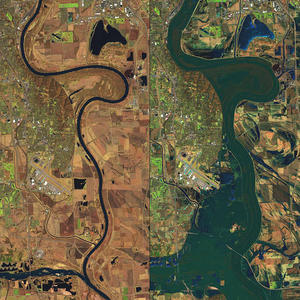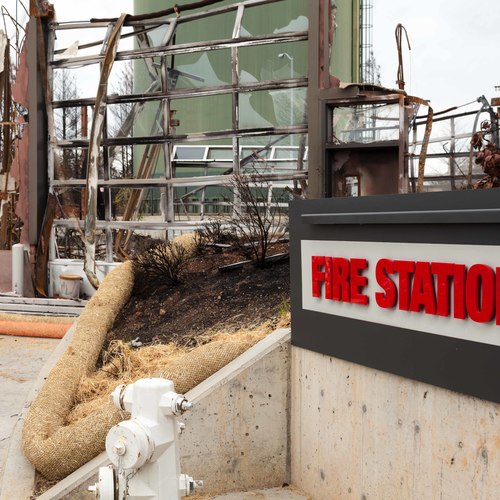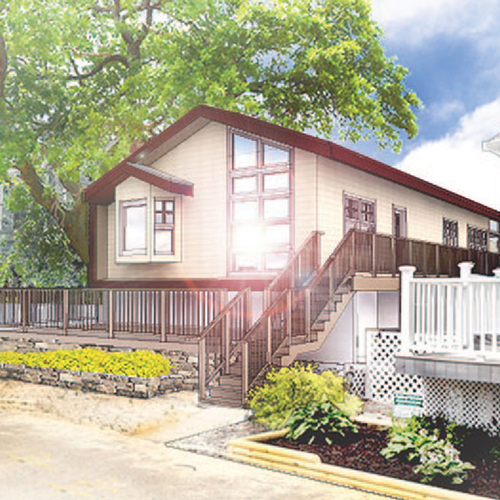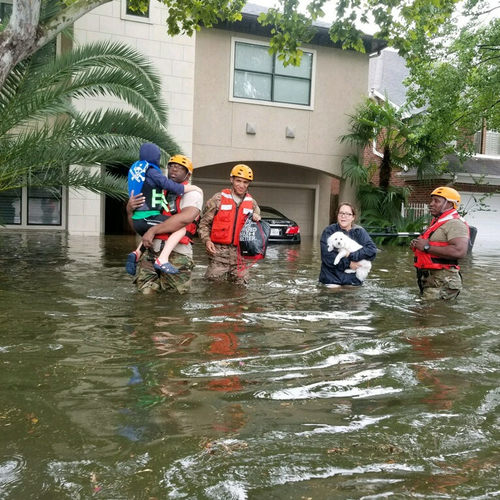
Insured losses from natural disasters totaled $80 billion worldwide last year, significantly higher than the 30-year average, a report from reinsurance giant Munich RE said.
Earthquakes, floods, tropical cyclones, and two especially devastating wildfires in California all contributed to total economic losses of $160 billion, ranking it among the 10 costliest disaster years and the fourth most expensive for the industry since 1980.
The Camp Fire in California was the most expensive natural disaster of the year for insurers, with insured losses of $12.5 billion and overall losses of $16.5 billion. The Woolsey Fire was fourth on the list, at $4 billion in insured losses ($5.2 billion overall).
U.S. losses from Hurricane Michael in August and Hurricane Florence in October totaled $30 billion. In all, the report said, 800 people in the U.S. lost their lives in natural disasters last year as total losses reached $82 billion.
Globally, natural disasters killed 10,400 people last year, with widespread floods in Asia and Africa accounting for 35% of the total.
The report from Munich RE, a U.S.-based reinsurance company, said that in all, there were 29 events globally that resulted in losses of $1 billion or more each.
“Payouts by the insurance industry helped to boost catastrophe resilience, in other words the ability after a disaster to return to normality as quickly as possible,” the company said.
But insurance is much more likely in industrialized nations than it is in developing nations. A total of 68% of insured losses were in North America, and another 23% in Asia.
“There has been a steadily growing willingness in these countries to take out cover against natural hazards since the 1980s,” the report said. “The situation with insurance protection in emerging and developing countries is quite different, despite the fact that, for financially weak and low-income countries, improving risk management and resilience-building systems is an important way of mitigating the impact of humanitarian disasters and promoting sustainable economic growth.”
In California, disaster aid is threatened
California is in the midst of recovery efforts after the devastating year’s series of wildfires, but President Donald Trump said this week that he intended to cut off federal emergency aid because of the state’s forest management practices.
In a tweet, Trump said, “Unless they get their act together, which is unlikely, I have ordered FEMA to send no more money,” The Washington Post reported. “It is a disgraceful situation in lives & money.”
It wasn’t clear whether the President has already told the Federal Emergency Management Agency to halt payments, or would be doing that at some point in the future. The Post asked FEMA for comment but got an automatic email response to the effect that the government shutdown prevented a reply.
It may be nothing more than bluster, and the president may have no legal authority to withhold money after declaring a national disaster, one former FEMA official said.
Rafael Lemaitre, the former director of public affairs for FEMA in the Obama administration, told The Post, “I am not aware of any mechanism where you can say, ‘I’m undeclaring a state of disaster.’ ”
More than 6,600 people have applied for FEMA aid in California and nearly $49 million in federal assistance has been approved.
The president has been critical of California in the past, citing its “gross mismanagement of the forests” and “bad environmental laws” that were responsible for diverting water that could have been used to combat fires into the Pacific.
Weekly Newsletter
Get building science and energy efficiency advice, plus special offers, in your inbox.















3 Comments
President Trump's comments leave me almost speechless. I moved to Lakeport in Lake County California in 2002. It is the county seat and has a population of approx. 5000 souls. It was established under the name of Lakeport in 1861 so is over 150 years old. It is a beautiful and quaint town surrounded by giant Oak trees and sits on Clear Lake, the second larges lake in California.
There have been fires locally periodically throughout its history but sparsely and with long distances of time in between them. The most recent large fire that occurred before I moved here was called the Hell fire. It was caused by a fireman who's last name was Hell who was responsible for letting a back fire get away from his crew. It was a fire prevention measure that (literally) backfired.
However in the last four or so years there have been 4 large fires in Lake County, at least one almost every year. It has literally been like hell here for many of the residents of this county with numerous residents losing their homes. I have been fortunate and have not suffered in that way. Psychically is another. Many of us here suffer from a low level of PTSD where we are now hyperactively vigilant every summer.
Last summer Lake County suffered the largest fire (not the most damaging- that was in Paradise) that has ever burned in California. For four days I sheltered in place and watched my neighbors all leave from the mandatory evacuations. The only things I had going for me was that the wind for almost the entire time was nonexistent and that I live a block from Clear Lake. I knew that if the worst came I could retreat and jump in the lake. So I hunkered down with a water hose available on top of the roof and was ready to take a fire fighting stand if it was required. I was lucky and it never was. If there had been high winds or no lake nearby it would have been foolhardy to do what I did. It was a calculated risk that to me was worth taking.
It should be evident even to Mr. Trump that forest management is not the problem. In fact forest management carries it own risk as locals observed in the Hell fire caused destruction before I even moved here. It's global warming, pure and simple. It's so obvious that these fires and seriousness of each fire are the result of global warming at this point that any other conclusion is just denialism. People like the President thinks Californians are just flakes, and want to use them as scapegoats. Until you suffer from man made anthropogenic Global Warming I can only say that the Republicans going along with Trump's policies are committing a crime against the planet and against their fellow citizens of this great country.
The figures I even are that the California government owns and manages 2% of the forested lands in the state. Federal government owns and manages 60% of the forested lands. Balance of ownership is private interests. So who isn't doing a good job?
I hate it when disasters are rated on a cost basis because population growth and inflation guarantee a significantly higher figure. Humans will continue to adapt and overcome like they have for tens of thousands of years.
The US Govt owns over 90 percent of the land in 12 western states. Yikes !
Log in or create an account to post a comment.
Sign up Log in